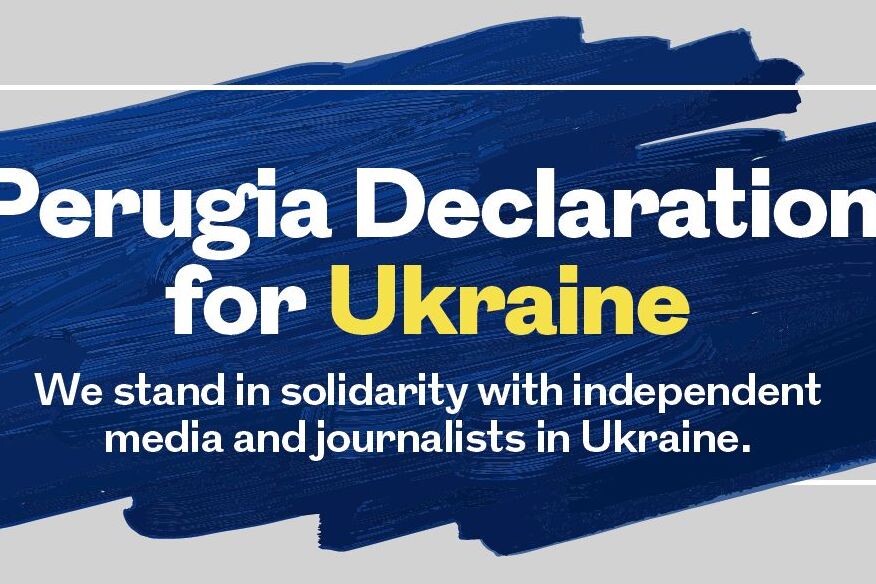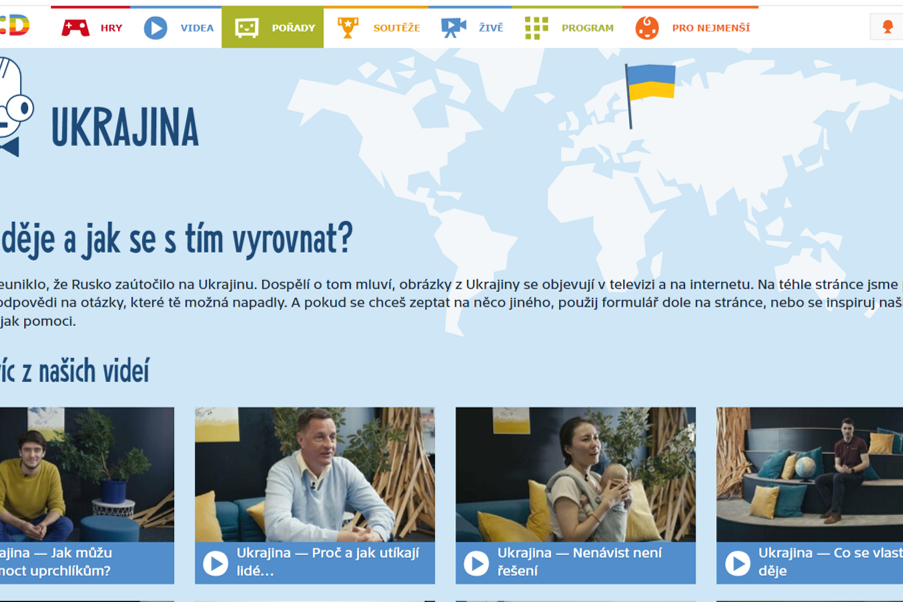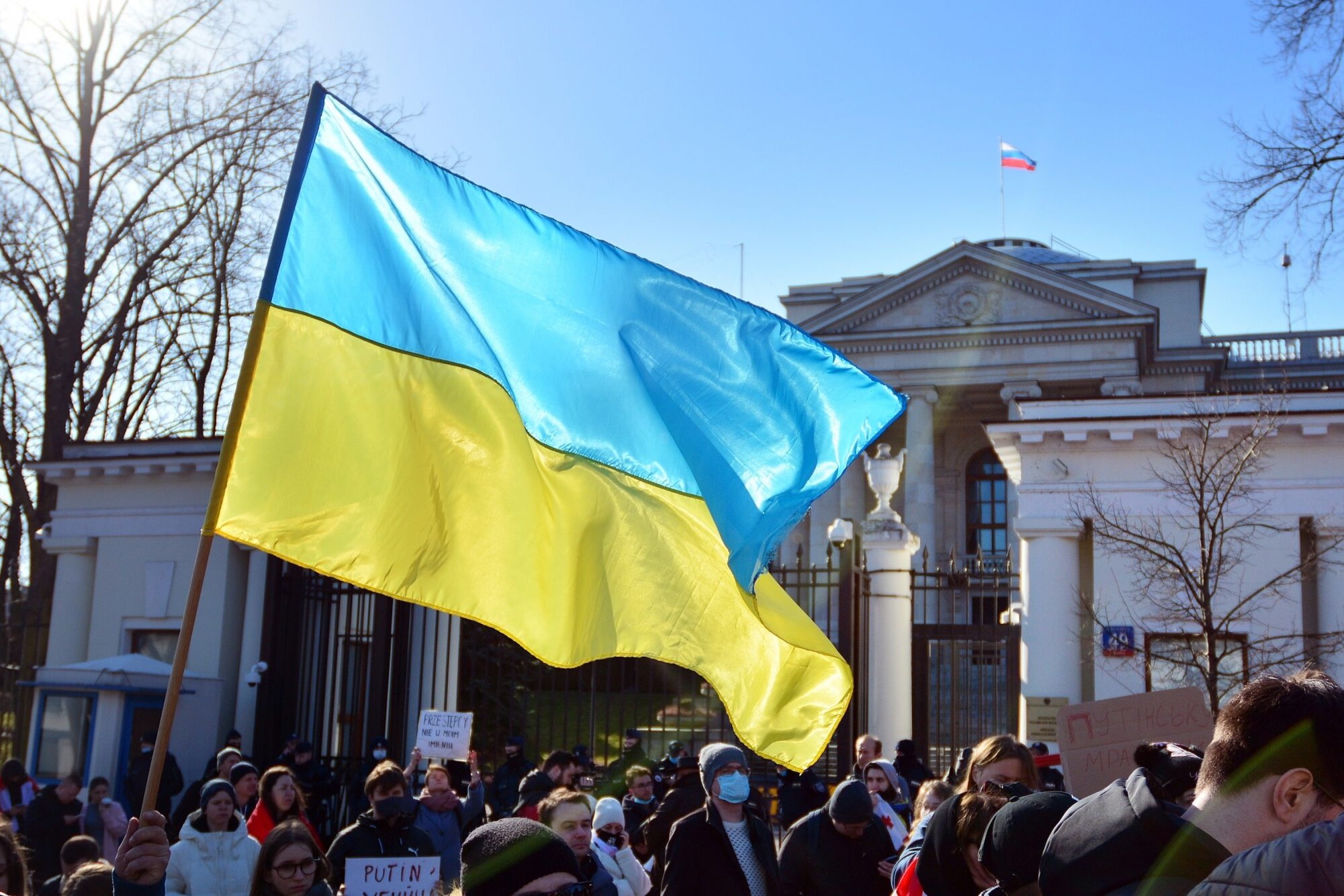One Year On: Public Broadcasting and Ukraine
23rd February 2023
Independent public service broadcasters continue to play a crucial role in providing factual, trusted coverage of the Ukraine war, both for those on the frontline and beyond.
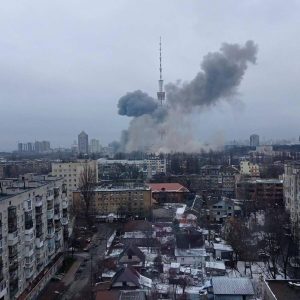
On Friday 24 February, broadcasters around the world will be marking the one-year anniversary of Russia’s invasion of Ukraine. The past 12 months have been a test for journalists and media organisations to cover the conflict in its entirety. From war crimes and allegations of genocide to the subsequent refugee crisis as many Ukrainians fled their homeland. From the onslaught on Ukraine’s technical infrastructure to the geopolitical ramifications across Europe and the rest of the world. The war has taken its toll, both in front of the camera, and behind it.
The story has been complicated, multifaceted, and relentless in its urgency. The conflict has impacted on many peoples’ lives, not just in Ukraine, but across Europe where the energy crisis has added to the cost-of-living crisis. But the conflict has also demonstrated public service broadcasting (PSB) at its most effective and creative:
- Many PSBs turned to producing podcasts in the immediate aftermath to offer context. And these daily podcasts, such as NPR’s “State of Ukraine” or the BBC’s “Ukrainecast” continue one year on.
- The BBC, for its part, recognised the need to reach audiences in Russia who were unable to easily access reliable independent journalism, and turned to both old and new technology – the dark web and shortwave radio – to get to them.
- Services for Ukrainian refugees were launched, such as Czech TV’s nightly news offering in Ukrainian, SRG SSR’s Ukrainian news website, and RTBF’s hub of practical information for newly-arrived Ukrainians.
- Broadcasters have turned to collaboration and cooperation to share knowledge and content, such as Swedish Radio’s Russian-language podcast about the war, which they made available to all media across Europe via an open API.
- Educational materials have been distributed both domestically and to Ukraine. VOA recently signed an agreement with an NGO to distribute its Learning English materials for English teachers in Ukraine.
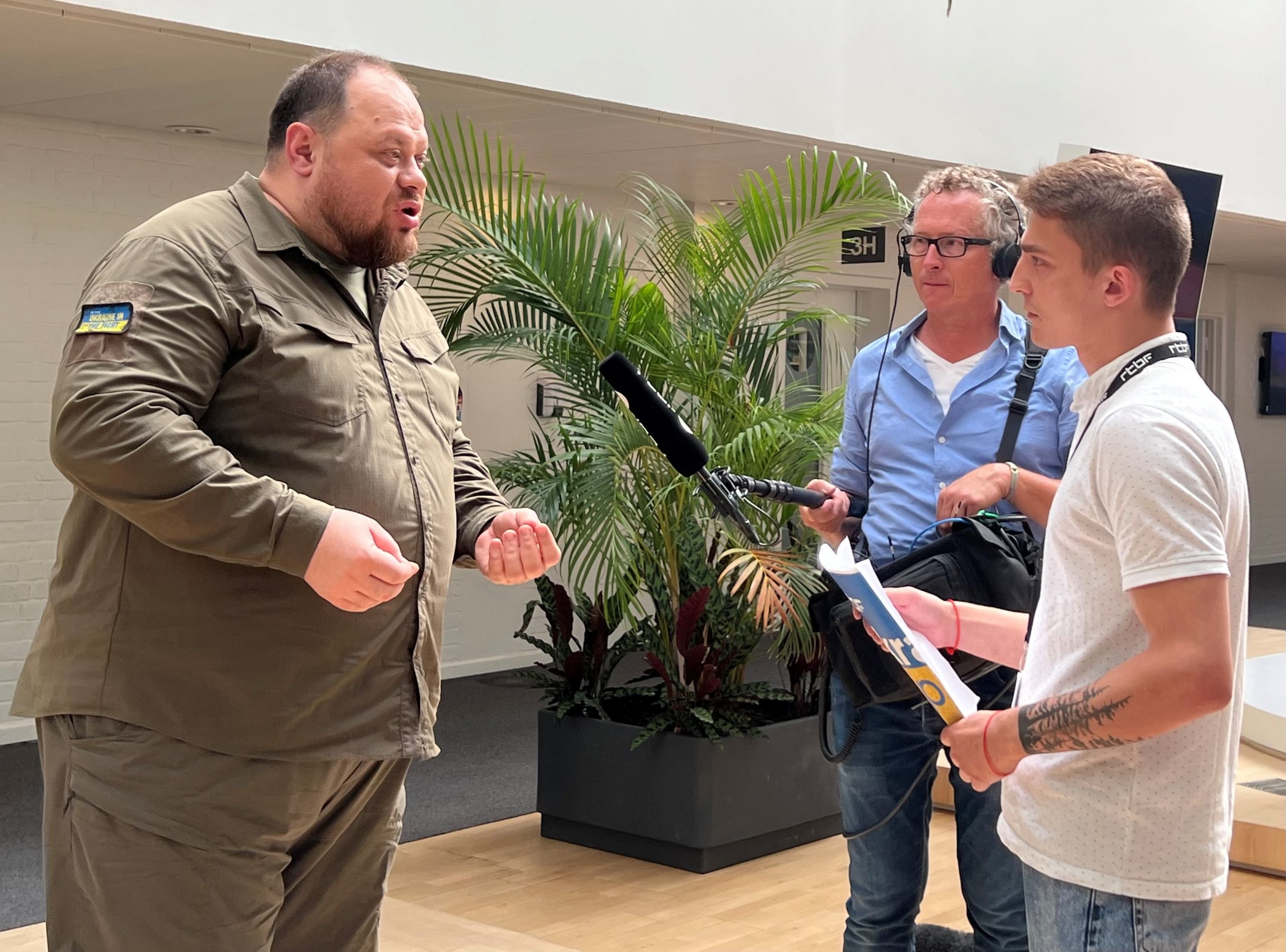
Throughout the conflict, Ukrainian public broadcaster Suspilnie has continued to broadcast despite the direct, relentless impact of the war on its staff. The emotional and physical turmoil of so many, coupled with internal displacement and blackouts from day one of the conflict, put into context the sheer achievement of continuing to report on behalf of the Ukrainian public.
To mark the occasion of the first anniversary, many public broadcasters have put together a host of special programmes and events, from Ukrainian documentaries to live shows and concerts. The European Broadcasting Union has compiled a selection of events from across its membership.
In times such as this, it is critical that audiences can access a public broadcaster that provides verified information they can trust. With disinformation used as another weapon against liberal democracy in this war, public service media provides an additional line of defence through rigorous fact-checking and verification. In times of uncertainty, doubt, and fear, audiences need to be able to rely on a news organisation that represents them, that reports without fear or favour, and whose journalists seek out the truth. Public service media, at home and abroad, have provided this for audiences during the ongoing conflict, and it must continue to do so.
Related Posts
21st April 2022
Ukraine war: Public media podcasts with unique takes
From an open API to practical info for…
22nd March 2022
Czech Television’s services for children on Russia-Ukraine war
Czech Television has launched a new…
25th February 2022
Statement of Support for Ukraine and Ukrainian Journalists
The Public Media Alliance joins over 70…

